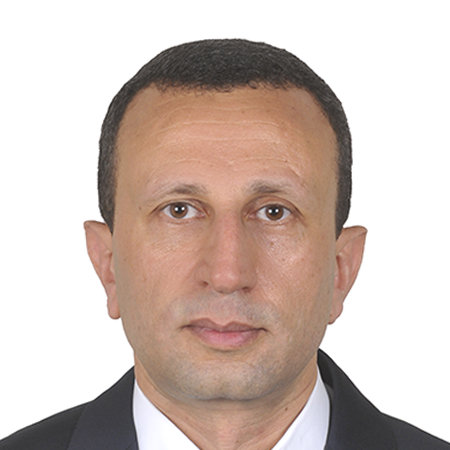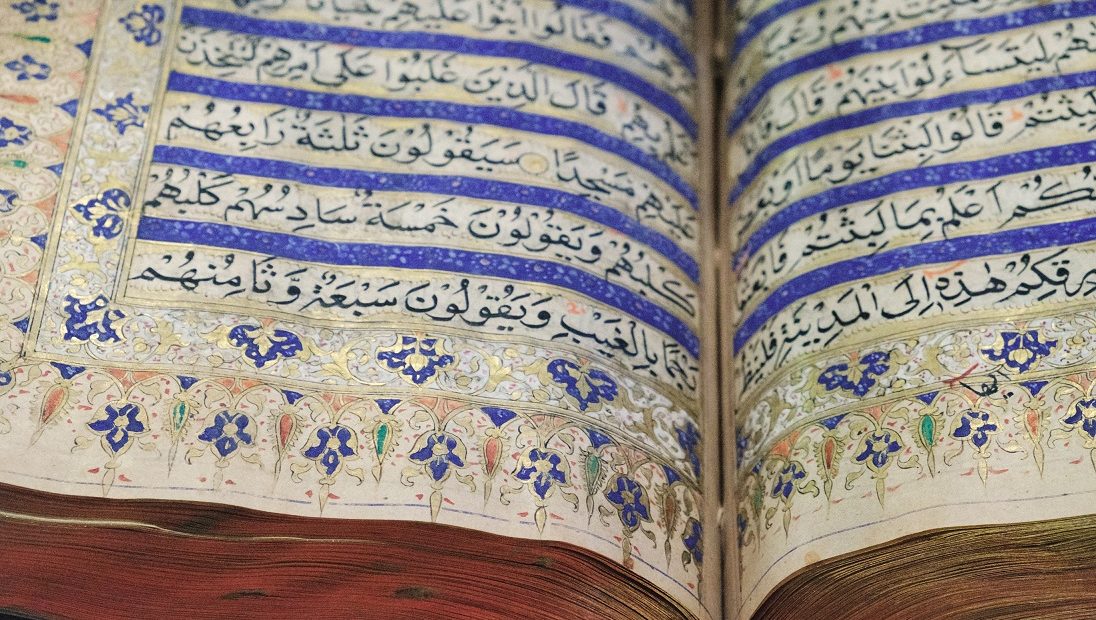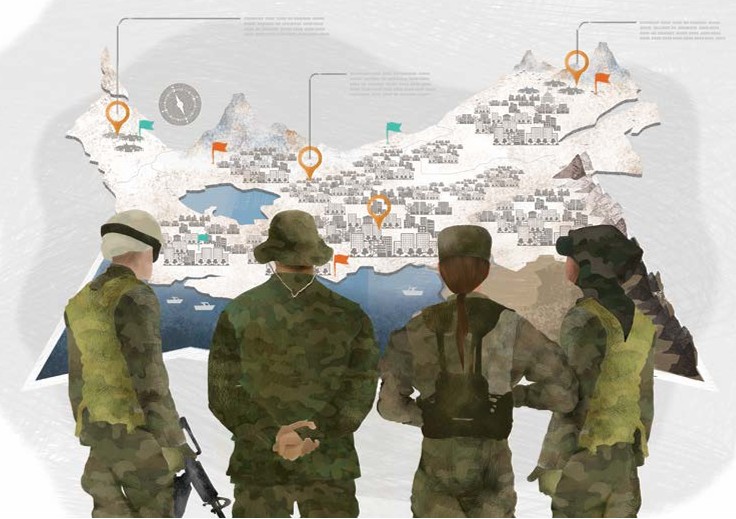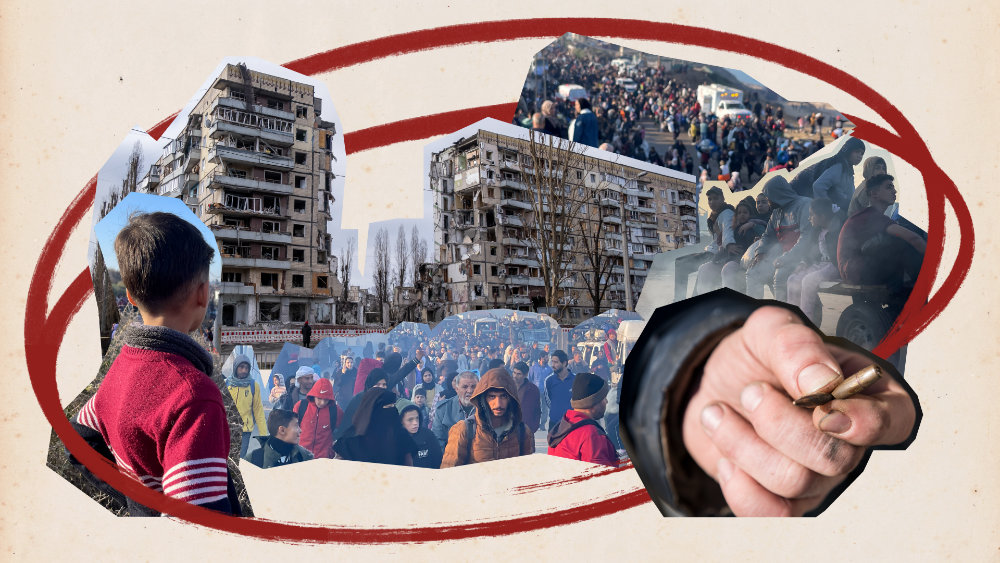There is a classic Islamic legal maxim that Muslim jurists call al-ḥukm yadūr maʻ al-ʻillah, or ‘the ruling evolves with its effective cause’. In other words, law is a living instrument that must evolve and react to changes in its application or interpretations that could prevent it from achieving its objectives.
This principle came to my mind as I reviewed the ICRC’s updated Commentary on the Third Geneva Convention (GCIII), part of a project to maintain the protection that GCIII provides to prisoners of war in international armed conflicts in light of the current realities of armed conflict and detention. In juxtaposing and examining these two bodies of law – Islamic law and international humanitarian law – there are two key issues relevant to the protection of POWs that clearly stand out: humane treatment, where the two bodies align, and the killing of POWs, where interpretations risk diverging.
Humane treatment
The core principle underlying GCIII is the requirement of humane treatment of POWs at all times, as is reflected in Article 13 and many others of the Convention’s provisions. Beyond the specific examples provided in Article 13 – such as causing death, endangering health, intimidation, and insults – any other form of inhuman or degrading treatment is a violation of this core principle.
Under Islamic law, most of the rules relevant to the treatment of prisoners of war are based on the earliest precedents, going back as far as March 624 CE, when Muslims troops captured 70 enemy combatants during the Battle of Badr. In the absence of legislation on the legal status of POWs or designated places of detention, this relatively large number of POWs posed a serious challenge. But instead of opting for an easier but potentially less humane option, such as tying the prisoners up outside, they were divided up into groups and housed in the mosque and with the Companions of Prophet Muhammad, who were instructed by the Prophet to ‘observe good treatment towards the prisoners’.
With this instruction, the Qur’an and the earliest Islamic historical literature (Sīrah) documented numerous examples of humane treatment that POWs received at the hand of the Companions of Prophet Muhammad. For example, with regard to food, some of the prisoners reported they were given the best food available in the circumstances, and were even prioritized over the captors themselves, in order to comply with the instructions. This altruistic treatment is described in the Qur’an 76:8 as follows, ‘And they feed the needy, the orphans and the captives [from their] food, despite their love for it [or also interpreted as: because of their love for God]’. Centuries later, when Ṣalāḥ al-Dīn al-Ayyūbī, also known in the West as Saladin, (d. 1193) was unable to feed the large number of prisoners who had fallen under his control upon reclaiming the Al-Aqsā Mosque, and felt he had no choice but to release them.[1]
Killing prisoners of war
Despite the clear importance of humane treatment under Islamic law, opinions diverge as to whether it is permissible to kill POWs. In their search for the answer to this question, classical Muslim jurists referred to one of two verses of the Qur’ān (47:4 or 9:5) and the Sunnah (tradition) of Prophet Muhammad. The first ever group of Muslim jurists, including Ibn ʻAbbās (d. 668), ʻAbd Allah ibn ʻUmar (d. 693), al-Ḥasan al-Baṣrī (d. 728) and Saʻīd ibn Jubayr (d. 714) based their position on the Qur’ānic text (47:4) and argued that under Islamic law, POWs must be released unilaterally or in exchange for captured Muslim soldiers, a position that does not contradict GCIII.
However, the majority of classical Muslim jurists, including the Shāfiʻīs, the Mālikīs, the Ḥanbalīs, as well as al-Awzāʻī (d. 774) and Sufyān al-Thawrī (d. 778), found that the State must choose, based on its best interests, among any of the following options: executing some or all POWs, enslaving them, setting them free, or exchanging them for Muslim prisoners. Apart from the release of POWs, these options – which reflect seventh and eighth century norms – clearly violate the contemporary standards of international humanitarian law set forth in GCIII. Nonetheless, these options have been cited recently by certain arms carriers to justify, for example, the killing of captured persons under their control.
It is important to note that the permissibility of execution under Islamic law, as advocated by some jurists, is based on the execution of just three POWs during the lifetime of the Prophet: al-Naḍir ibn al-Hārith and ʻUqbah ibn Muʻayṭ at the battle of Badr in March 624 CE; and Abū ʻAzzah al-Jumaḥī at the battle of Uḥud in March 625 CE. Regardless of the authenticity of these accounts, and whether these prisoners were killed during hostilities or after their capture, it is clear that these three individuals were singled out from among the other prisoners for crimes they had committed against Muslims in Mecca before fleeing to Medina, and not simply because they were prisoners of war. Therefore, we can conclude on this issue that today Islamic law should be interpreted as outlawing the killing of POWs, in line with the requirement of humane treatment clearly established under Islamic law.
***
GCIII is the most comprehensive legal framework of our modern international legal system when it comes to the protection of POWs, but its study alone may not provide answers to all the contemporary challenges faced in detention today. The commonalities and contradictions between the provisions of GCIII and other legal frameworks and traditions influencing the behavior of arms carriers must not be ignored.
GCIII, just like any treaty Muslims lawfully enter into, is a binding legal framework not only from the perspective of international law, but also from the perspective of Islamic law. Respecting treaties is an obligation for all Muslims, as dictated in the Qurʼān (2:40, 2:177, 3:76, 5:1, 16:91–94, 17:34) and as reflected in the Sunnah (exemplary conduct) of Prophet Muhammad. Any discrepancies between GCIII and the rules developed by classical Muslim jurists does not affect the binding nature or effect of the norms of the former. GCIII is universally ratified, meaning that all States in the world, including all Muslim-majority States, have agreed to be bound by its rules, and therefore Muslims are obligated to respect its provisions according to Islamic law. This should not be seen as controversial to even the most conservative Islamic scholar, as nothing in GCIII contradicts the fundamental principles of Islamic law.
[1] Dalīlah Mubārikī, “Ḍawābiṭ al-ʻAlāqāt al-Dawliyyah fī al-Islām Zaman al-Ḥarb”, Majallat Kulliyyat al-ʻUlūm, 4th year, 9th ed., July 2004. p. 206.
See also
- Asanga Tilakaratne, Peter Harvey, Sunil Kariyakarawana, Andrew Bartles-Smith, GCIII Commentary: a Buddhist perspective on the treatment of prisoners of war, January 19, 2021
- Kelisiana Thynne, GCIII Commentary Symposium: “Preparations Have Been Made in Advance”–GCIII and the Obligation to Respect and Ensure Respect by Preparing for Retaining POWS, January 27, 2021 (published in Opinio Juris)
- Chanel Chauvet, GCIII Commentary: Prisoners of War Remittances–Financial Challenges of Sanctions and Conversion Rates, January 21, 2021 (published in Opinio Juris)
- Cordula Droege, GCIII Commentary: ten essential protections for prisoners of war, July 23, 2020
- Jemma Arman, GCIII Commentary: protecting the honour of prisoners of war, September 3, 2020
- Ahmed Al-Dawoody, IHL and Islam: An overview, March 14, 2017






Well done prof. Ahmed “ the treatment of prisoners of war” in islam is a good topic
A very good comparative study. There is a need for further research in this domain.
Great piece of contemporary comparative analysis! Ever ready to espouse the debate further.
Nicely written and nicely read! Thanks a lot for such insight and always looking forward to reading comparative studies in this matter, Islam and IHL. It enables us on the field have a better approach when one encounters situations where IHL rules, and the GCIII in particular, are misleadingly put versus Islam precepts. Thanks again Dr. Ahmed Al-Dawoody!